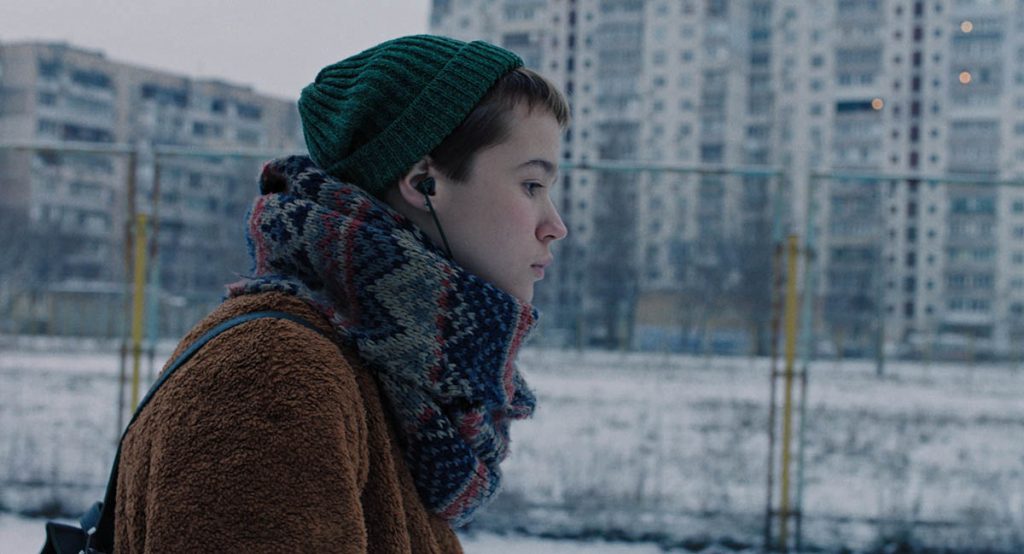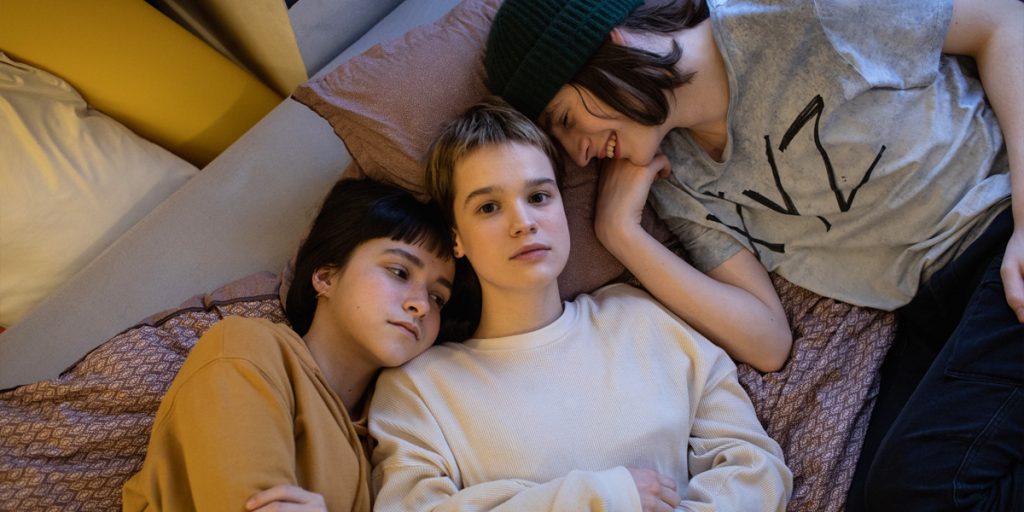Kateryna Gornostai’s Stop-Zemlia is an effective – if overlong – encapsulation of being a teenager, of first loves and self-discovery and the intensity of emotions and external pressure.
Being a teenager is, perhaps, one of the most turbulent periods of a person’s life. Kateryna Gornostai’s Stop-Zemlia encapsulates that time, that moment of suspension at the tail end of childhood and on the brink of adulthood. A time when emotions are rampant, tumultuous and confusing; when making decisions about university and playing games in the park with friends are equally as important endeavours, and when crushes blossom and first loves bloom and wither. It’s a film that meanders but really gives the complexities of being a teenager time to breathe, and feels like a reflection from a director who understands the universality of the teenage experience.
Masha (Maria Fedorchenko) feels a bit like an outsider, as content to spend time in her room as her peers are to party together. She has a crush on a boy named Sasha (Oleksandr Ivanov), and has two best friends who are equally as mis-fitting, Yana (Yana Isaienko) and Senia (Arsenii Markov). While Stop-Zemlia spends the most time with Masha and Sasha, it also uses documentary-style interludes to let their classmates have individual moments too, where they answer questions about life, love and self-discovery.
There’s a naturalistic quality to the film, with its pre-production involving a lot of collaboration between the director and over 200 actual teenagers. The dialogue was improvised by the young cast, and it really bolsters the feeling that this is a teen film that isn’t like what many might consider a ‘teen’ film to be. It’s contemplative and it feels so grounded in the reality of what young people are actually like, rather than feeling contrived and stereotypical as more mainstream cinema might have leant towards in the past. Fedorchenko’s Masha is quiet, a sensitive over-thinker who doesn’t feel like she fits in, and her performance feels authentic and delicate. It’s an affecting access point for the film’s young audience, but also for those who are not-so-young but can easily remember that rollercoaster transitional time of their lives.

Stop-Zemlia is a film with both low- and high-stakes. Low in that it’s simply following a group of teenagers during their everyday school lives, and high in that the nature of teenage-ness is so inherently emotionally charged that everything from sneaking text messages in class to scoring a slow-dance with a crush at the disco feels momentous. Gornostai’s inclusion of documentary style sections really helps with the film’s authenticity, in that it literally gives voice to the issues so many teenagers face. Loneliness, worrying about what to do after leaving school, depression and anxiety, first loves and sex, as well as their journeys of self-discovery, of learning about themselves. It really imbues the film with a sense that it knows its audience, knows exactly the demographic it’s tapping into and is committed to portraying these modern coming-of-age stories in as accurate a light as possible.
Coming in at two hours though, the film does feel a tad overlong. Gornostai affords her characters a lot of breathing room, a lot of time to express themselves and to interact with each other, but the result is that it starts to drag quite heavily after the first hour. There are also dreamlike interludes – such as Masha playing badminton in the dark, and Sasha playing the piano in a mostly-empty auditorium – and the film might have benefited from a tighter edit, as their inclusion doesn’t necessarily affect the outcome of the film and their loss wouldn’t detract from what Gornostai is attempting to achieve.
All in all, Stop-Zemlia is a sensitive encapsulation of being a teenager that feels authentic and like it understands its introverted characters as equally as it does the extroverted ones. It feels personal to Gornostai and likely to resonate with both an audience right in the midst of that roiling maelstrom of hormones and emotions, and one decades removed from it. Masha states: “I’m not there [the past] anymore and I’m not there [the future] yet”, and it feels like a perfect summation of being stuck between child and adult, of that very specific and formative period that can really shape who one might eventually become.
Stop-Zemlia will open in Los Angeles for a weeklong run at the Laemmle Glendale on January 21, 2022. The film will be available on VOD in the US the same day.

